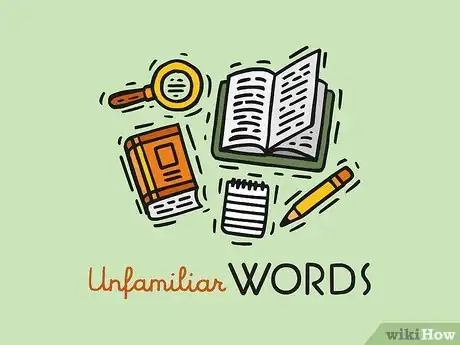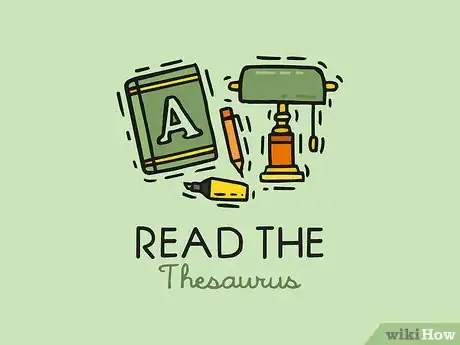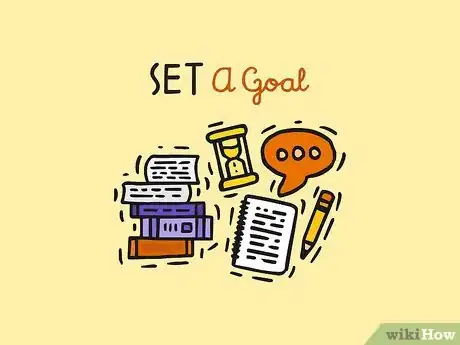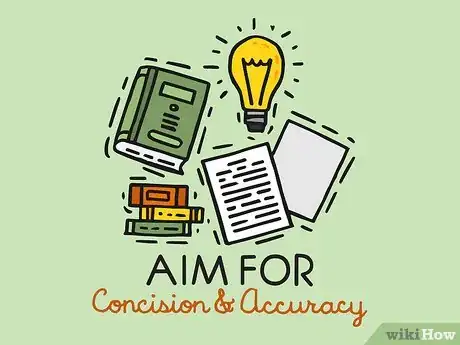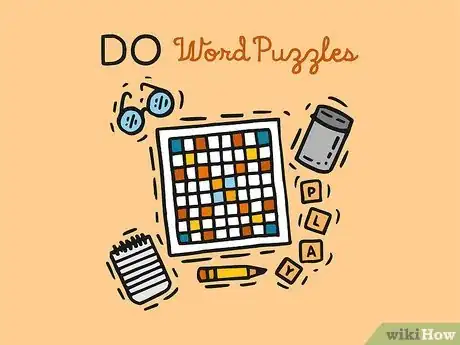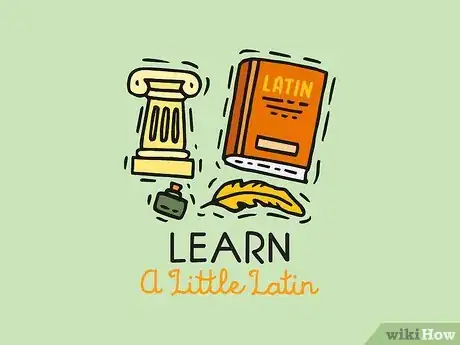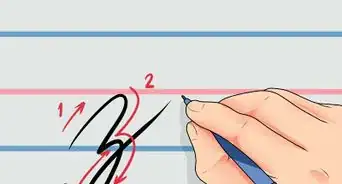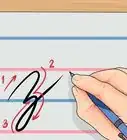This article was co-authored by Lydia Stevens. Lydia Stevens is the author of the Hellfire Series and the Ginger Davenport Escapades. She is a Developmental Editor and Writing Coach through her company "Creative Content Critiquing and Consulting." She also co-hosts a writing podcast on the craft of writing called "The REDink Writers." With over ten years of experience, she specializes in writing fantasy fiction, paranormal fiction, memoirs, and inspirational novels. Lydia holds a BA and MA in Creative Writing and English from Southern New Hampshire University.
There are 9 references cited in this article, which can be found at the bottom of the page.
wikiHow marks an article as reader-approved once it receives enough positive feedback. This article received 55 testimonials and 87% of readers who voted found it helpful, earning it our reader-approved status.
This article has been viewed 686,974 times.
Learning is ceaseless. You can cultivate an erudite persona as an adolescent--or even as an octogenarian--by building your vocabulary. Creating habits to help you learn and use the most accurate words in your language will make it easier to communicate, write, and think. Continue reading after the jump for more specific tips about building your vocabulary.
Steps
Learning New Words
-
1Read voraciously. Once you leave school, you won't get word drills and homework assignments that force you to learn new words. It can be easy to stop reading. If you want to build your vocabulary, establish a reading regimen and stick to it.[1]
- You might try reading one new book a week, or reading the newspaper every morning. Pick a frequency and pace that works for you, and develop a reading routine that fits into your schedule.
- Try to read at least one book and several magazines every week. Be consistent. As well as improving your vocabulary, you'll also keep updated and backdated, your general knowledge will increase, and you'll be an intelligent, well-rounded person.
-
2Read high literature. Challenge yourself by reading as many books as you have the time and inclination for. Read classics. Read new fiction and read old fiction. Read poetry. Read Herman Melville, William Faulkner, and Virginia Woolf.
- Try reading nonfiction and technical books: these will rapidly teach you not only new ways to speak, but also new ways to think. Read about a variety of subjects, like philosophy, religion, and science.
- If you usually read the local paper, consider trying the long, difficult stories in national, international and business newspapers and magazines, like The New Yorker or The Economist.
- There are many classics available for your perusal at Project Gutenberg and LibriVox.
Advertisement -
3Read online sources. Read online magazines, essays, and blogs on a variety of subjects. Read record reviews and fashion blogs.
-
4Look up any words you don't recognize. When you see an unfamiliar word, do not skip over it impatiently. Try to puzzle out its possible meaning in the context of the sentence, then look it up in the dictionary and confirm its definition.
- Consider keeping a small notebook with you and quickly jot down unknown words as you come across them for checking later. If you hear or see a word you don't know, be sure to look it up.
-
5Read the dictionary. Dive in. Read entries for words you aren't yet familiar with. This requires the ownership of a quality dictionary to make it more interesting, so look for a dictionary that has lengthy explanations on the origins and uses of words, as these will go a long way to helping you remember the word and enjoy using your dictionary.[2]
-
6Read the thesaurus. Look up words you use a lot so you can learn similar words, and use those words as well.
- Reading and having conversations with others is the most significant way to improve your vocabulary.[3]
- You can enhance your vocabulary by reading a dictionary or using an online thesaurus.[4] [v161927_b01]. 1 September 2021.</ref>
- Or take a linguistics class and learn about how languages have formed.
Using New Words
-
1Set a goal. If you're committed to building your vocabulary, set a goal for yourself. Try to learn three new words a week and work them into your speech and writing. With conscious effort, you can learn several thousands of new words that you'll remember and use. If you can't use a word effectively and accurately in a sentence, it's not a part of your vocabulary.[5]
- If you're easily learning three words a week, start upping the ante. Try to learn ten words next week.
- Looking up 20 new words a day in the dictionary will make it difficult to use any of them accurately. Be realistic and build practical vocabulary that you'll be able to use.
-
2Use flashcards or post-it notes around your house. If you're going to make a habit of learning new words, try some simple memorization techniques as if you were studying for a test. Hang post-its with the definition of a particular word you hope to memorize above the coffee maker, so you can study it while fixing your morning cup. Affix a new word to each house plant so you can study while watering.[6]
- Even if you're watching TV or doing other activities, keep some flashcards with you and study your new words. Always be building.
-
3Write more. Start journaling if you don't already, or start a blog. Actively flexing your writing muscles will keep your vocabulary strong.[7]
- Write letters to old friends and use lots of specific details. If your correspondence is typically short and informal, switch it up and write a longer letter or email than you're used to writing. Take time in crafting letters as you would an essay for school. Make considered choices.
- Consider taking on more writing responsibilities at work. If you typically avoid composing memos or writing group emails or participating in group discussions, change your habits and write more. You might as well get paid to build your vocabulary.
-
4Use accurate adjectives and precise nouns. The best writers aim for concision and accuracy. Get out the thesaurus and use the most accurate word possible in your sentences. Don't use three words when one will do. A word is a useful addition to your vocabulary if it reduces the number of words in a sentence.[8]
- For instance, the phrase "dolphins and whales" can be replaced with the word "cetaceans," making "cetaceans" a useful word.
- A word is also useful if it is more descriptive than the word or phrase it replaces. For example, many people's voices could be described as "pleasant". But someone with a very pleasant voice could be said to have a "mellifluous" voice.
-
5Don't flaunt it. Inexperienced writers think using the Thesaurus function in Microsoft Word twice in every sentence makes writing better. It doesn't. Using flashy vocabulary and "spelling bee" words makes your writing pompous. What's worse, though, is that it also makes writing less accurate than more common words. Using the appropriate word is the mark of a real writer and a sure sign of advanced vocabulary.
- You could say that "Iron Mike" is Mike Tyson's "sobriquet," but "nickname" might be the more accurate and useful word in the sentence. Therefore, "sobriquet" may be less useful in your vocabulary.
Building Vocabulary
-
1Sign up to be emailed a "Word of the Day" using one of the many online dictionaries. You can also procure for yourself a Word of the Day calendar; be sure to read the word on the page each day and aim to remember each day's word and even use it somewhere in your day.
- Visit word building sites such as freerice.com and construct an expansive vocabulary while nourishing the hungry or doing something else useful.
- There are many online sites devoted to compiling alphabetical lists of unusual, weird, old-fashioned, and difficult words. Avail yourself of the search engine to find these sites and to learn from them. This is a great way to while away time waiting for a bus or in the bank queue.
-
2Do word puzzles and play word games. Word puzzles are an excellent source of increasing your word knowledge because the puzzle creators will often need to resort to an array of unusual words to ensure that the words fit into their puzzles and that they are interesting for the puzzle doer. There are many varieties of vocabulary puzzles, including crosswords, find-a-word and hidden word puzzles. As well as strengthening your word knowledge, puzzles are also good for improving your critical thinking skills. For word games, try such games as Scrabble, Boggle, and Cranium to extend your vocabulary.
-
3Learn a little Latin. Although it might seem like a dead and done language, knowing a bit of Latin is an excellent way to learn the roots of many words in the English language and can help you figure out the meaning of a wide range of words that you don't yet know without having to resort to the dictionary. There are online Latin learning resources, as well as plenty of texts (check out your favorite used books bookstore).[9]
Community Q&A
-
QuestionWhat kind of books should I read to work on my writing?
 DonaganTop AnswererThere are many books on how to write well. However, reading absolutely any book will help your writing if you pay attention to the way the writer uses words.
DonaganTop AnswererThere are many books on how to write well. However, reading absolutely any book will help your writing if you pay attention to the way the writer uses words. -
QuestionI've tried hard to learn more and more words and utilize them in my daily conversation, but at the right moment I abruptly forget and get stuck. What should I do?
 DonaganTop AnswererJust keep practicing. We get better at things we practice.
DonaganTop AnswererJust keep practicing. We get better at things we practice. -
QuestionI can't understand some words when Americans sing, but I understand everything when they speak. Why is that?
 Community AnswerAmerican singers often sing very quickly and do not pronounce words clearly. Many native English speakers have to look up song lyrics in order to know what singers are saying.
Community AnswerAmerican singers often sing very quickly and do not pronounce words clearly. Many native English speakers have to look up song lyrics in order to know what singers are saying.
Warnings
- Be aware that you may use words others may not know, and this could create barriers to communication and mutual understanding. Be prepared to use simpler synonyms in different contexts to alleviate this problem. Don't be a jerk, in other words.⧼thumbs_response⧽
Things You'll Need
- Dictionary
- Word cards and marker
- Notebook and marker
- Classic novels, difficult reads
- Wide range of reading material
References
- ↑ https://www.jocrf.org/resources/effective-ways-build-your-vocabulary
- ↑ https://www.cornerstone.edu/blog-post/5-ways-reading-can-change-your-life-and-best-practices/
- ↑ https://kidshealth.org/en/parents/comm-4-to-5.html
- ↑ https://files.eric.ed.gov/fulltext/ED413576.pdf
- ↑ https://www.ucop.edu/local-human-resources/_files/performance-appraisal/How%20to%20write%20SMART%20Goals%20v2.pdf
- ↑ https://learningcenter.unc.edu/tips-and-tools/learning-a-second-language/
- ↑ https://www.usa.edu/blog/ways-journaling-benefits-students/
- ↑ http://www.butte.edu/departments/cas/tipsheets/style_purpose_strategy/writing_clearly.html
- ↑ https://www.hunschool.org/resources/benefits-taking-latin
About This Article
If you want to expand your vocabulary, read a variety of books and look up words that you don't know. For example, you could try reading some free classics, like those by William Faulkner or Virginia Woolf, on websites like Project Gutenberg or Librivox. You can also improve your vocabulary by getting a high-quality dictionary and looking up a few words each day. Alternatively, you can sign up for one of the free "Word of the Day" emails sent by online dictionaries. To learn how to incorporate new words into your writing, read on!



